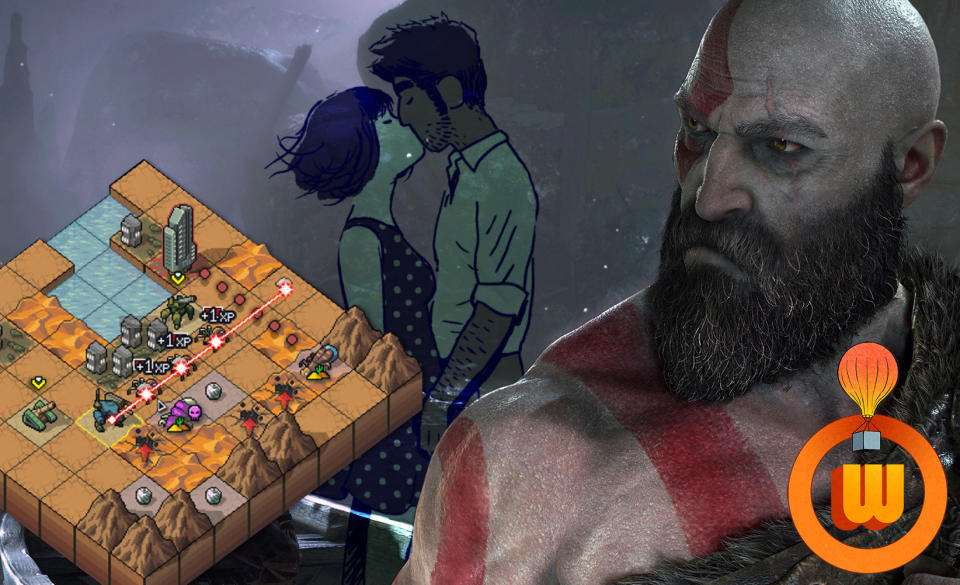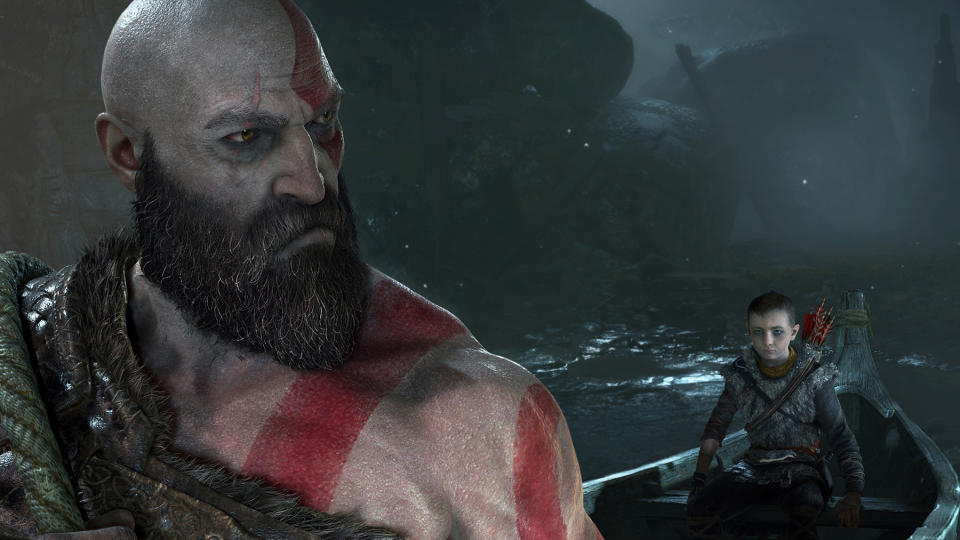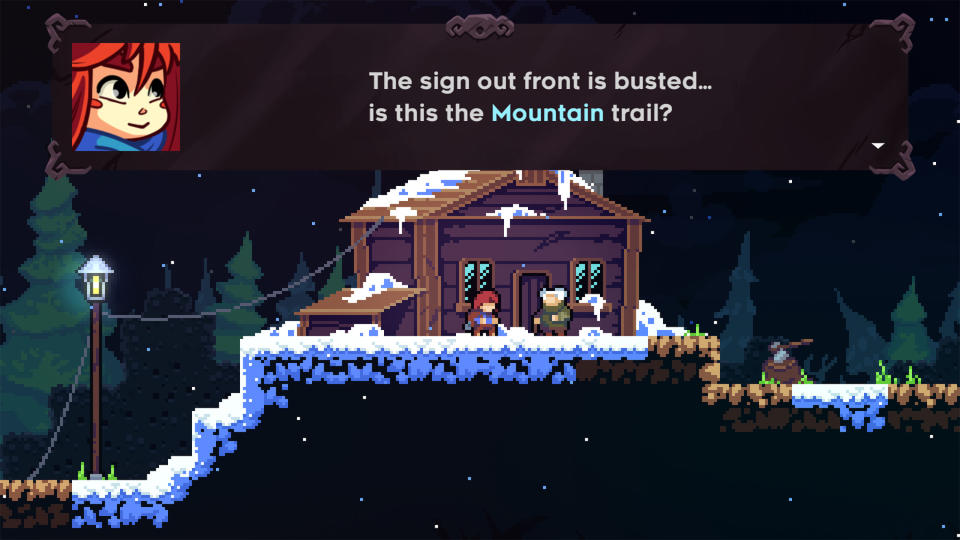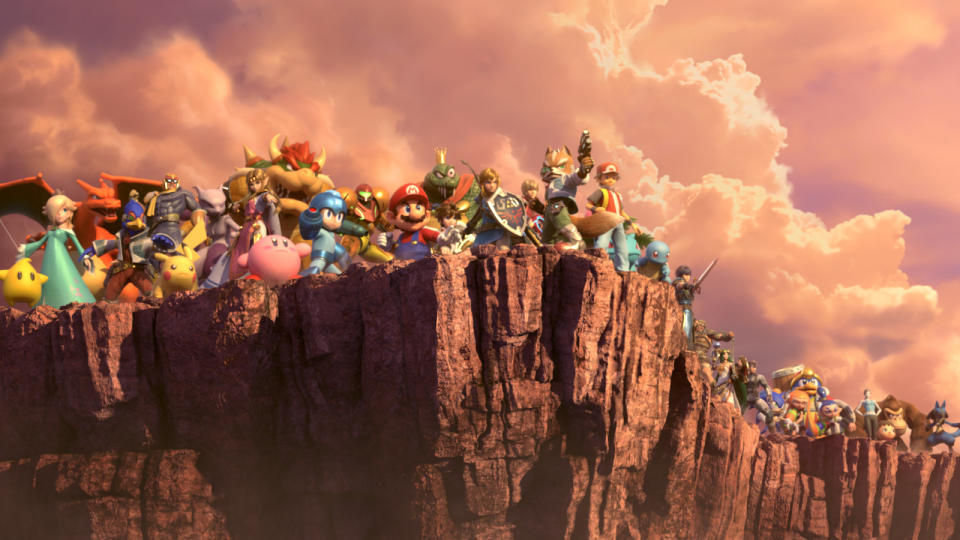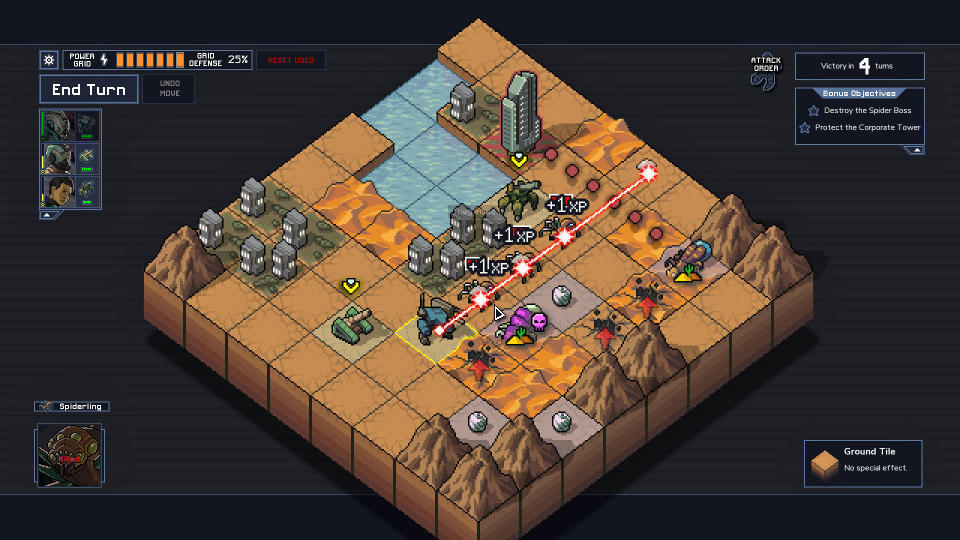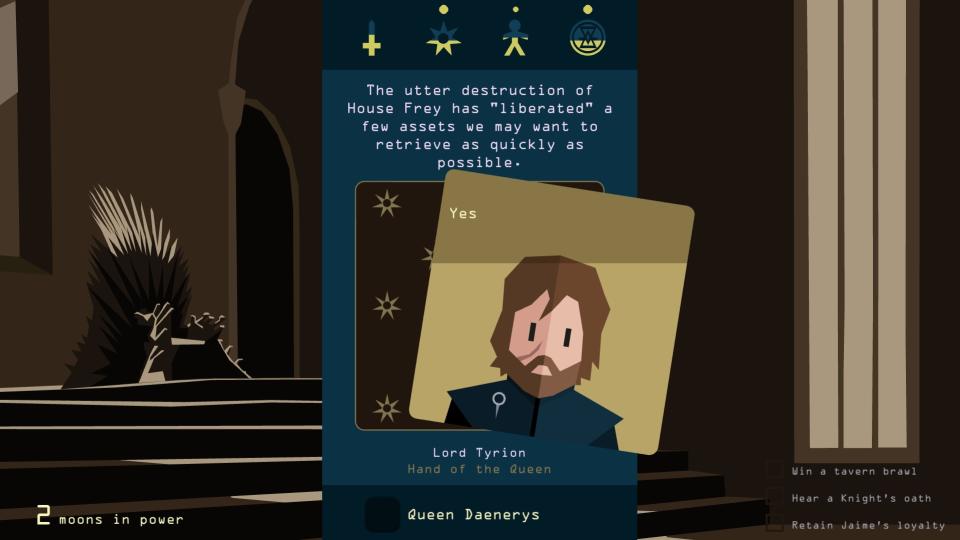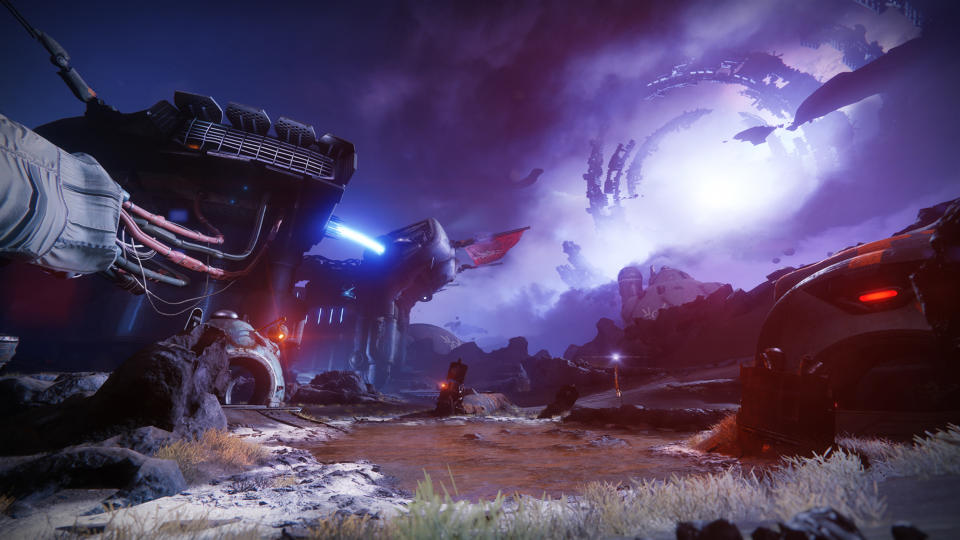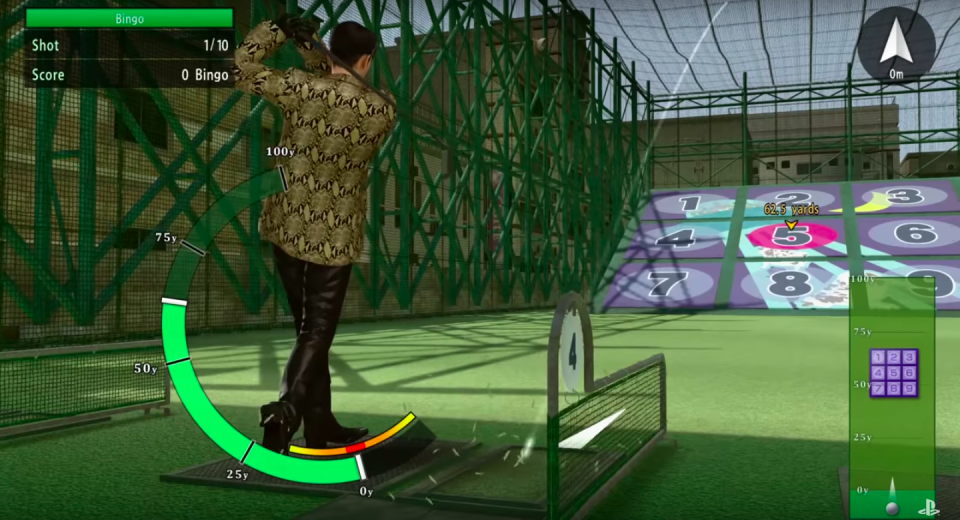Our favorite games of 2018
All killer, no filler.
It didn't take long for us to declare 2017 a pretty great year for games, with a spectacular roster that included Super Mario Odyssey, Wolfenstein: The New Colossus and Assassin's Creed Origins. In our roundup last December we also listed what we were looking forward to in 2018 and, while very few of those titles made our final list this year, we can still confidently declare these past twelve months pretty awesome in the world of gaming.
We got a new God of War title and possibly the best Smash Bros. installment yet, while a few indies like Into the Breach and Celeste knocked it out of the park as well. Rather than try to come up with a simple "best of" list, the editorial team here at Engadget proudly presents the games that made the biggest impact on us this year, whether they were technically impressive, emotionally engaging or just flat-out fun.

God of War

Mat Smith
Bureau Chief, UK
Despite it being a huge, critically acclaimed hit, I didn't buy God of War for half a year. I'd fallen into a Yakuza-shaped hole and was playing my way through that series' remastered editions. Waiting paid off, though — the godly epic from SIE Santa Monica Studio landed on PSN for roughly half price a few months later. Now was my chance. While I was never a fan of the original game's angry, horny protagonist Kratos, the idea that they'd given him a few decades of maturity and a new on-trend daddy look intrigued me. Then there were the fraught father-son dynamics, and the posit of throwing Greek god mythology up against Norse gods.
The game's characters and the story are subtly unveiled as you less subtly cave in heads and explore the Norse lands of Midgard. There are only a handful of characters but, because of that, they're all given more time in cutscenes and dialogue to cement what they're all about and what's happening in their world. Kratos (barring a couple of surprises later in the game) is the only part that's been transferred from the God of War series. Battles play out completely differently as your son Atreus functions like a (mostly invincible) support character with several elemental arrows at his disposal. Kratos' blades-on-chains have been replaced with a new frost ax that can be hurled into enemies, freezing some of them — it works similar miracles on puzzles spread across the main adventure.
What I enjoyed most was the epic, divine feel of the journey. Once I finished the main narrative, I realized that the main goal (spreading Atreus' mother's ashes from the highest mountain) never really changed, despite plenty of interruptions, drama and paternal bonding. Antagonists like Odin are referenced but you never get to butt heads with them — which at least teases the notion of future, similarly grounded GoW titles to come. Hopefully.

Celeste

Jessica Conditt
Senior Editor
On the surface, Celeste is an ultra-satisfying, infinitely replayable, pixel-saturated platformer about a girl climbing a mountain. Its smooth mechanics alone would be enough to make it a recommended release of 2018. However, Celeste offers so much more. Buried behind the Metroid-Mario-Meat Boy facade and fantastic chiptune soundtrack, Celeste presents a moving, relatable story about confronting your worst internal fears while struggling with disappointment, depression and defeat.
Through its quirky characters, rich world and simple jumping mechanics, Celeste invites players to succeed, but at a price. It follows a young adventurer named Madeline as she attempts to climb Celeste Mountain and conquer its mysteries — the game is exceedingly difficult and some levels feel downright impossible, with mere pixels separating a successful jump from another death. However, there's always a way to win, and the game's intuitive, responsive controls encourage players to keep trying. The common theme in Celeste might be "die, die and die again," but given the game's message about perseverance and internal strength, it feels more like "try, try and try again."
Matt Thorson proved he could make a competent, butter-smooth platformer with TowerFall in 2013, and Celeste builds on this foundation by adding a powerful, heartfelt story to the mix. Celeste is an old-school adventure for the modern age; it's a ton of fun to play, but most notably, it's reflective and emotional without being overbearing. Celeste is a shining example of everything the video game industry gains from the existence of a thriving independent development scene.

Florence

Devindra Hardawar
Senior Editor
I've spent dozens of hours this year shooting cowboys in Red Dead Redemption 2 and stabbing everyone in Assassin's Creed Origins (and Odyssey). However, in the end I find myself thinking more about an elegant love story from a mobile game more than any big budget title. Florence, from the makers of Monument Valley, is more like an interactive novel than a game. But it's a striking example of how smartphones — the blessing and curse of the modern age that serves as a gateway to instant gratification, never-ending work responsibility and FOMO-inducing social networks — can be used to tell old stories in new ways.
Girl meets boy, and has to figure out a way to fit him into her life. That's the basic gist. Florence is every twenty-something with a repetitive job and cute apartment. She's making a living, but lost the inspiration she used to have. Like a Murakami novel, we're introduced to her through the mundanity of her life. She can't help but hit snooze on her alarm several times. We swipe up and down to brush her teeth. We mindlessly like or repost images from a nameless social network while she's closed off from the world during her crowded morning subway commute. Her cubicle job is fine and sensible, but endlessly dull (the game forces you to match numbers to file the equivalent of a TPS report). She gets a call from her worried immigrant mother, who seems to judge every aspect of her life.
Then she meets Krish, a dashing cellist, and everything changes. I won't spoil what happens, but it's all told in a similarly episodic way. It reminds me of some of my favorite novels like Ethan Frome and Norwegian Wood, with the same sense of longing but minus so much tragedy. We've seen some games in the past few years that explore love and relationships (in particular, Life is Strange and Gone Home), but Florence has an identity all its own thanks to its sharp writing, gorgeous art style and soothing soundtrack. It's a pocket full of love, heartache and early adulthood.

Super Smash Bros. Ultimate

Christopher Schodt
Video Producer
I'm a lapsed Smash Bros. player. The first Super Smash Bros. and (more importantly) its GameCube follow-up Melee were a huge part of my social life in high school. I sank an uncountable number of hours into that series while sitting on friends' couches. (Samus for life.)
Then I went to college and drifted away from some of those friends. I still played a lot of PC games, but I never played the next two Smash Bros. games on the Wii and Wii U. In fact, Nintendo was hardly on my radar at all.
But this past year a Switch came into my life as a present, and Smash Bros. Ultimate came as an impulse. I had no plans to buy it, but I watched a video review to see what all the fuss was about. I can't fully explain what happened (it was late, I was tired, there may have been wine), but the review mentioned that Dark Samus was now a playable character. 43 seconds later, I owned the game.
The way this series unites so many different fandoms is its greatest achievement. Because I'm continually years behind in my backlog of games, I only just beat Bayonetta a month ago. I now derive a silly amount of pleasure using her weird dominatrix-via-hair-salon smash moves to smack around cute characters from series like Animal Crossing and Pokémon. This is probably Nintendo's secret evil plan. Beyond just playing your favorite characters, Smash Bros. is also a great introduction to new franchises. After a glorious afternoon wrecking up the place as the Inkling, I'm starting to feel like Splatoon may be worth a try...
Smash Bros. Ultimate seems to have been designed with the flexible on-the-go ethos of the Switch in mind. I've had a blast playing for hours with three friends on a big screen, but most of my time with the game comes from picking up the Switch to play two or three "Spirit Board" fights: quick themed battles against the computer that reward you with power ups and collectibles. Smash Bros. is a great multiplayer party game, but the amount of single-player content the game includes is staggering. There are more than 1000 Spirit Board fights, which tie into a full RPG-esque campaign called World of Light. Every character (all 74+ of them) also has their own short campaign you can play in an arcade mode complete with high scores (and the option to replay endlessly for a better result).
The first time I booted up the game, one of my old friends from high school was online. It took a little doing to navigate the matchmaking system, but within a few minutes we were in a game together. I think he may have played a few of those intermediate Smash Bros. releases that I skipped because he thoroughly creamed me. However, I've just unlocked Dark Samus and I'm ready for a rematch.

Into the Breach

Jamie Rigg
Reviews Editor
Subset Games just seems to make the kind of stuff I wanna play. I like to be challenged, and Into the Breach has that in spades. Rather than tell a sprawling, immersive story, the game gets right to the point. You command a trio of mechs, the world is threatened by an alien invasion and you are its only hope (or something along those lines).
You had me at "mechs."
Into the Breach is technically a turn-based strategy game, but I think it's more of a puzzler than anything. Each turn, you get to see what your enemies are planning next but, more often than not, firepower isn't your greatest weapon; movement is.
It's a unique style of strategic gameplay, with layers you only come to appreciate over time. I like that you can approach every turn any number of ways. Perhaps you use terrain to block an attack, turn enemies against each other or put your mech in the line of fire to protect a key building under threat. Or maybe you give the gray matter a rest and simply blast your way to victory, because the game is designed to let you play any way you want.
I absolutely adore Subset's Faster than Light, and Into the Breach is the perfect spiritual sequel. It has the same charming pixel art style and similarly ambient soundtrack to suck you in. For me, it's the perfect kind of single-player experience. It's hard right from the outset and, being a rogue-like, every timeline is slightly different. With a playthrough taking roughly an hour and a half (if you make it to the end), it's finite enough that I don't have a chance to lose interest.
There are so many reasons to keep coming back to it, too. There are plenty of unique mech squads with inventive abilities to unlock and clever achievements to complete, all of which can completely change how you tackle a run. What's more: considering the deep, brilliant mechanics and the amount of hours you can potentially throw at Into the Breach, it's a steal.

Reigns: Her Majesty / Reigns: Game of Thrones

Kris Naudus
Senior Editor
I am not a mobile gamer. I don't Candy Crush or Clash of Kings or even Pokémon Go. I played Mystic Messenger for the first time this year and absolutely hated it, especially because of how utterly blatant the in-app purchases are and how much they limit your options if you don't pay up.
Which is probably one of the reasons I loved Reigns: Her Majesty and Reigns: Game of Thrones so much. There's no "buy extra lives for 99 cents," no "wait 1 hour before you romance again." I paid the rather reasonable $3 and $4 and then jumped right into their simple mechanic of choosing one option or the other in my quest to rule the land for as long as possible — swipe left, swipe right, repeat until I died. Which I did... a lot. But then I can just start swiping again. It's a lot like looking for a match on Tinder, except way more satisfying than my last few dates. (I'd rather deal with the frog princess than yet another hedge fund manager.)
The speed and ease of play has meant these are games I fiddle with on the train, before doctor's appointments or yeah, in the bathroom. I've finished Her Majesty a few times now but I often keep just playing anyway because I want to see what character my monarch will confront next, as well as unlocking all the different deaths. I certainly can't think of any other game where you drown digging a latrine.
Reigns: Game of Thrones could have been an easy cash grab but it changes the rules up a bit while still taking a lot of loving care with the world of the books and show. However, I think I prefer Her Majesty because it's an original property so your imagination is given a lot more room to grow... also, it makes me laugh. Which uh, is also something I can't say of many of my dates.

Destiny 2: Forsaken

Jon Fingas
Associate Editor
I know what you're thinking. Forsaken, really? An update to a year-old game that struggled out of the gate? Hear me out: This next iteration of Destiny 2 is one of the largest improvements to a game in recent years (see also No Man's Sky), and it might draw you in — even if you gave up on the game months ago. It's the title I fire up most often when I have spare time. That's no mean feat given there were moments from the original release that burnt me out.
Forsaken works because there's simply a lot more to do than before, especially if you shell out for the yearly pass like I did. There are exotic weapon quests, seasonal events, triumphs (think in-game achievements) and loads of daily and weekly goals. And then there's Gambit — its clever mix of cooperative and competitive multiplayer is more than a little addictive. Combine that with solid shooting mechanics and an intriguing (if occasionally overwrought) story and it's a game that continuously satisfies me for however long I'd like to play, whether it's a 15 minute burst or a three hour marathon. I can't say that for the original D2, which usually devolved into a competitive-only game the moment I finished a story section.
Don't get me wrong, there are still problems: Forsaken is very grindy in places, for one thing. As much as I like the flurry of short-term achievements, it's not much fun to spend ages chasing down an elusive gun or a rare triumph. Tougher elements like raids are still largely off-limits. I don't have hours upon hours of uninterrupted time (let alone the clan members) to devote to a notoriously difficult experience. But I don't have to participate in raids to thoroughly enjoy myself — and unlike the first time around, I know there will be plenty of reasons to come back.

Yakuza Kiwami 2

Andrew Tarantola
Senior Editor
The Yakuza series has always been about more than winning street fights and managing hostess clubs. It started as the story of Kazuma Kiryu, a young man trying to survive in the deadly world of Japanese organized crime. As the series has progressed, and Kazuma steadily climbed the ranks of the Yakuza (gaining new allies but losing friends and family along the way), fans have been treated to a depth and mastery of storytelling not often found in gaming franchises. Virtually every character — from the protagonists to the tertiary players — is fully realized with a coherent backstory. The ever-shifting loyalties between and within competing Yakuza clans are deftly balanced, like a spider's web of backstabbery fluttering in the Sotenbori wind. The latter of which you can actually see on occasion because the graphics are fantastic.
But, for all the nuance and granularity of the plot, it never becomes obtuse or cumbersome. Quite the opposite: if you forego the various side quests (of which there are many), the game plays like a fast-paced action thriller. And, if you set the game down for a couple weeks, you can come back and jump right back in with minimal need to refresh your memory.
Even the street fights themselves are a treat. Armed with an array of high-flying combat moves and a literal arsenal of weaponry, players are well-positioned to beat down any opposition they encounter, whether it's a half-dozen delinquents or the leader of a rival clan. Best of all, leveling Kazuma's abilities is much less of a grind than previous iterations of the series, eliminating the need to spend hours farming cash or glowing power orbs. In short, Yakuza Kiwami 2 is simply the best game I played in 2018. Eat your heart out, Spider-Man.

Spider-Man

Nick Summers
Reporter
Man, that web swinging. Insomniac's Spider-Man game is a marvel (no pun intended... okay, maybe some pun intended) for many reasons, but the traversal system is my favorite. It just feels so-freaking-good to zip around Manhattan with the speed and acrobatic flair of Peter Parker. The basics are simple — just press and hold R2 to swing -- but knowing when to release for maximum height and velocity takes some practice. Throw in some point launches, corkscrews and backflips and the game becomes a super-powered parkour simulator. I haven't had this much fun dicking about since Skate 3.
Of course, movement is only a part of the experience. Insomniac crafted a terrific story that skips Parker's superhero origins (which, let's be honest, we've all seen and read a thousand times before) and takes place in a subtly unique version of the Marvel universe. You know all of the characters -- both friend and foe -- but their backstories and, more importantly, history with Spider-Man are tweaked in fascinating and genuinely surprising ways. It also takes the time to explore Parker's civilian life as a cash-strapped researcher working under the seemingly normal Otto Octavius.
And then there's the combat. Spider-Man offers a wealth of flips, punches and kicks inspired by professional wrestling. You can also use his web shooters to stun, ensnare and disarm foes. It's a surprisingly deep system buoyed by upgradeable gadgets and unlockable costumes that come with unique spider-powers. The noir suit, for instance, stops enemies from calling for backup once they've spotted you. The Stark suit, meanwhile, summons a helpful drone in battle. I also love that the powers can be used in conjunction with other suits. Like the Stark suit, but want the noir suit's power? No problem.
The movement, combat and world building culminate in a truly superb PS4 exclusive. The game isn't perfect — some of the collectibles and baddie-riddled bases are a drag — but I'm confident Insomniac will fix these shortcomings in the sequel. Oh, and did I mention that Miles Morales, the star of Sony's new animated movie, is in this game? Well, he is.
The rest
As always, forcing people to choose just one game to represent an entire year led to consternation among Engadget editors. And, as always, we found a way to include some more gems. Here are the games we felt also deserved a mention:
No Man's Sky

This is the year No Man's Sky finally became No Man's Sky. After a turbulent launch, a lawsuit and dozens of gameplay updates over the past two years, Hello Games has delivered a connected universe stuffed with mysteries and adventure. No Man's Sky will be around for a good while.
Hollow Knight / Dead Cells

I'm not a huge fan of Dark Souls-esque games and rogue-likes, so I was surprised that two of my favorite titles this year fell right into those categories. Hollow Knight isn't new, but this year it made it to the Switch and I fell in love with it instantly. It transcends the overcrowded Metroidvania sub-genre thanks to its a distinct art style, tremendous score and razor-sharp combat. But mostly, it just has a relaxing vibe of melancholia and destroyed beauty. I'm not sure what that says about me that I found it somewhat therapeutic during this tumultuous year. Dead Cells, meanwhile, is pure action and mayhem. I love the gear and the pixelated art style, but mostly, I appreciated that the combat simply feels good, with a fluidity we don't often see today.
Donut County

It's always nice to see a long-anticipated game finally come out and deliver on all of its sugar-dusted promises. Donut County turns a hole in the ground into an engaging gameplay mechanic, and sets players free in an eccentric, lovable world inspired by Los Angeles... and doughnuts, of course.
Tetris Effect

As a kid my mother would take me with her to the post exchange and I'd peel off the minute we walked in the door to head over to the electronics department. Sometimes there was a Genesis set up there, but for the longest time it was a solitary Game Boy with Tetris on display. I'd start at level 1 and play up to level 9 and just stare at that low-res green screen until my mother came and dragged me away.
As an adult I don't need to camp at a demo system in the department store anymore. I can buy my own game systems and my own games — at release even. And you bet I purchased Tetris Effect on release, wiling away hours upon hours with its trippy take on my favorite block-based puzzle game. There are some new twists I enjoy, like the Zone mode: It adds a new layer of strategy, and sometimes it's the only way I can deal with the higher speeds (up to 12). The new age woo woo aesthetic, though, I have mixed feelings about: Sometimes it's very distracting, and sometimes I'm wondering if the game is crossing the line into offensiveness with its Native American, African and Asian imagery.
But I can't deny it's beautiful; a long distance from the fuzzy green tetrominoes of my youth. My mother would have had a far harder time pulling me away from this.
Life is Strange 2, episode 1

The second full season of Life is Strange is off to a fantastic start. Dontnod doesn't shy away from tackling real-world issues like racism, immigration and gun violence, though the story so far is told through a relatable, human lens. And never fear — there's still plenty of teenage angst and sarcasm here.
